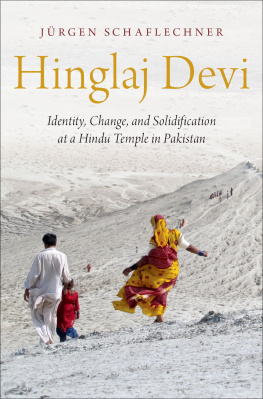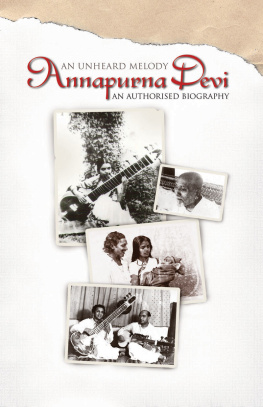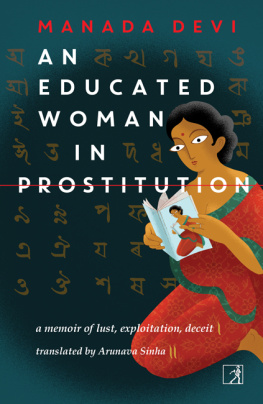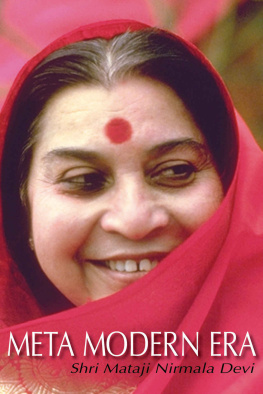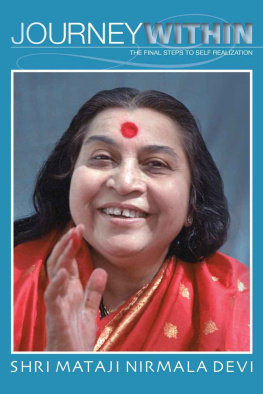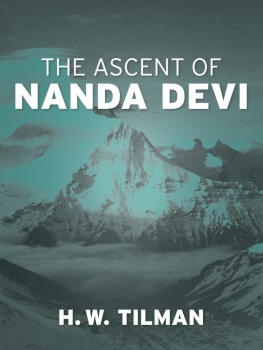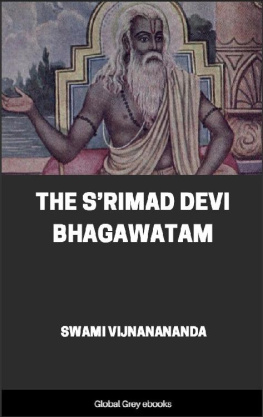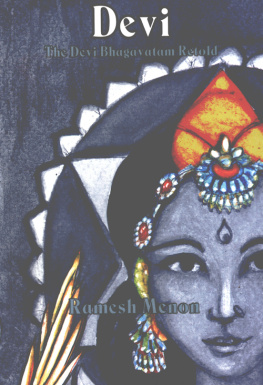Schaflechner Jurgen - Hinglaj Devi
Here you can read online Schaflechner Jurgen - Hinglaj Devi full text of the book (entire story) in english for free. Download pdf and epub, get meaning, cover and reviews about this ebook. year: 2017, publisher: Oxford University Press USA - OSO, genre: Religion. Description of the work, (preface) as well as reviews are available. Best literature library LitArk.com created for fans of good reading and offers a wide selection of genres:
Romance novel
Science fiction
Adventure
Detective
Science
History
Home and family
Prose
Art
Politics
Computer
Non-fiction
Religion
Business
Children
Humor
Choose a favorite category and find really read worthwhile books. Enjoy immersion in the world of imagination, feel the emotions of the characters or learn something new for yourself, make an fascinating discovery.
- Book:Hinglaj Devi
- Author:
- Publisher:Oxford University Press USA - OSO
- Genre:
- Year:2017
- Rating:3 / 5
- Favourites:Add to favourites
- Your mark:
- 60
- 1
- 2
- 3
- 4
- 5
Hinglaj Devi: summary, description and annotation
We offer to read an annotation, description, summary or preface (depends on what the author of the book "Hinglaj Devi" wrote himself). If you haven't found the necessary information about the book — write in the comments, we will try to find it.
Hinglaj Devi — read online for free the complete book (whole text) full work
Below is the text of the book, divided by pages. System saving the place of the last page read, allows you to conveniently read the book "Hinglaj Devi" online for free, without having to search again every time where you left off. Put a bookmark, and you can go to the page where you finished reading at any time.
Font size:
Interval:
Bookmark:


Oxford University Press is a department of the University of Oxford. It furthers the Universitys objective of excellence in research, scholarship, and education by publishing worldwide. Oxford is a registered trade mark of Oxford University Press in the UK and certain other countries.
Published in the United States of America by Oxford University Press 198 Madison Avenue, New York, NY 10016, United States of America.
Oxford University Press 2018
All rights reserved. No part of this publication may be reproduced, stored in a retrieval system, or transmitted, in any form or by any means, without the prior permission in writing of Oxford University Press, or as expressly permitted by law, by license, or under terms agreed with the appropriate reproduction rights organization. Inquiries concerning reproduction outside the scope of the above should be sent to the Rights Department, Oxford University Press, at the address above.
You must not circulate this work in any other form and you must impose this same condition on any acquirer.
Library of Congress Cataloging-in-Publication Data
Names: Schaflechner, Jurgen, 1981 author.
Title: Hinglaj Devi : identity, change, and solidification at a
Hindu temple in Pakistan / Jurgen Schaflechner.
Description: New York : Oxford University Press, 2018. |
Includes bibliographical references and index. |
Identifiers: LCCN 2017028646 (print) | LCCN 2017052020 (ebook) |
ISBN 9780190850531 (updf) | ISBN 9780190850548 (epub) |
ISBN 9780190850555 (online content) | ISBN 9780190850524 (hardback : alk. paper)
Subjects: LCSH: Hinglaj Devi (Temple : Hinglaj, Pakistan) |
Hindu pilgrims and pilgrimagesPakistanHinglaj. | BISAC: RELIGION /
Hinduism / Rituals & Practice. | SOCIAL SCIENCE / Anthropology / Cultural.
Classification: LCC BL1243.79.P183 (ebook) |
LCC BL1243.79.P183 H568 2017 (print) | DDC 294.5/350954915dc23
LC record available at https://lccn.loc.gov/2017028646
Fr Max als Willkommen und Versprechen.
Fr Nora als Dank und zum Abschied.
THERE IS A multitude of kind people who have helped me throughout the writing process of this book. I would like to express my gratitude to colleagues and friends at Heidelberg University, who have supported me over the years, encouraging me to follow my interest in Pakistan and in cultural theory. I particularly thank Fletcher DuBois, who has been my mentor and became a dear friend in the process of writing this book. I am grateful to Sarah Ewald, who was steadfast and talented as we transformed visions into moving pictures. I benefitted greatly from extensive proofreading and feedback from Heiko Frese, Max Kramer, Maitreya Borayin Larios, Gautam Liu, Christina Oesterheld, and Torsten Tschacher, who all read early drafts of this work. I also want to thank Julia Kleefeld and Othello for their time and assistance throughout. Nils Harm has been a very patient and professional cartographer. Ayesha Asifs solid editorial skills are much appreciated. My gratitude goes to Lillian who was the first and most critical reader of this book. You are always an inspiration for me.
In Pakistan, I would like to thank the Omar family, who gave me a home and asked for nothing except my company and some cooking in return. My life in Pakistan benefitted greatly from Sanjesh Dhanjas friendship and his wonderful sense of humor. He went on numerous exhausting desert trips with me and proved to be such an invaluable source on the Pakistani-Hindu community. I also thank Maheen Zia and Ayesha Qureshi for their generous hospitality and meaningful friendship. Ayesha Omer opened many doors for me and I am grateful for the things I have learnt from her. I owe much to Virsimal Dewani for his patience, friendliness, and supervision; to Saboor Haider for camera and design; to Hasan Ali Khan for introducing me to his world of jinns; to Mahim Maher for her enabling connections; to Aliya Iqbal and Taimur Suri for lending an ear in times of emergency; to Murid Ali and Sameer Mandhro for supporting me with the Sindhi language; to Habib Khokar for translating from Gujarati for me, and of course, to all the curious and friendly folks I met over the course of this project.
In India, I would like to thank the Lakhani family for supplying me with many almost forgotten texts on the Goddess. During my visit in Jaipur, I benefitted from the support and friendship of Rajendra Singh, and I thank him and his family for opening their home to me. My work with Hindu refugees in Jodhpur would not have been possible without the help of Hindu Singh Sodha, to whom I owe a great deal for his trust and guidance. I also thank Dayaram Kapri for his support in Bhuj.
I especially thank Hans Harder for his continuing trust in me, his attempt to bring Schmackes into these pages, and his willingness to give me room to grow. I also thank William Sax for introducing me to the desert Goddess and for his continuing guidance. I benefitted immensely from comments by Michel Boivin, who took the role of an external reviewer. Matthew Cook was a knowledgeable source and a great mentor for issues in the new world.
Earlier versions of parts of this book were published in 2015 as The Mother and the Other in Muslim Wanderers in South Asia, edited by Michel Boivin and Remy Delage (London: Routledge); as Denial and Repetition: The Solidification of Tradition in The Ambivalence of Denial: Danger and Appeal of Rituals, edited by Ute Hsken and Udo Simon (Wiesbaden: Harrassowitz); and in 2016 as The Hindu in Recent Urdu Horror Stories from Pakistan in Zeitschrift fr Indologie und Sdasienstudien vol. 32 (Bremen: Hempen Verlag). I want to thank the publishers for the permission to reprint these parts.
I also want to thank Bert, Helmut, Johanna, Jrgen, and Robert for their love and support. We truly have created an unbreakable rhizome; amicitia fortior. Finally, I am deeply grateful to my father and my sister, who are both already legends. There is so much more ahead of us!
WORDS FROM LANGUAGES other than English, such as South Asian languages (Bengali, Hindi, Sanskrit, Sindhi, Urdu), French, or Latin, are italicized. The respective South Asian languages are specified in parentheses also indicating the transliteration system, e.g., trtha (Hin.), chamah (Urd.). I have transliterated words for Hindi and Bengali following the conventional system for modern Indo-Aryan languages in Indic scripts (see are additionally mentioned in their root form in parentheses, for example, Seeta Koowas (probably from Hin. <st ku>). Names of individuals (historic persons or authors), deities, organizations, and places that have found their way into the English language are written without diacritics (e.g., Shiva, Karachi, Brahmo Samaj). Names of various groups and communities are also written without diacritics. Sometimes this diction follows the groups own way of spelling in English. Quotes from interviews and texts in Hindi, Urdu, or Sindhi are written in the transliterated form where more than one interpretation may be possible. Short quotes may be found in-text within parentheses while longer quotes appear in footnotes. All translations in this book are mine if not marked otherwise. A few names have been changed to protect privacy.
Font size:
Interval:
Bookmark:
Similar books «Hinglaj Devi»
Look at similar books to Hinglaj Devi. We have selected literature similar in name and meaning in the hope of providing readers with more options to find new, interesting, not yet read works.
Discussion, reviews of the book Hinglaj Devi and just readers' own opinions. Leave your comments, write what you think about the work, its meaning or the main characters. Specify what exactly you liked and what you didn't like, and why you think so.

